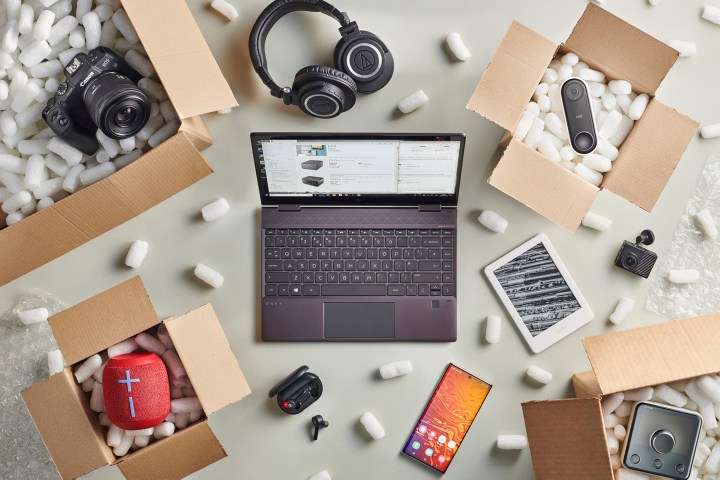We’re just over a year into this console cycle and it’s still nearly impossible for a normal person to get their hands on new hardware. The PlayStation 5 has been notoriously difficult to find since it launched, with the Xbox Series X also facing the same shortages. Even Nintendo is suffering now despite the Switch being on the market since 2017. We all hoped these shortages would start to resolve themselves by now, and yet reports are coming in saying these consoles are likely to be scarce through 2022.
While this is an issue for consumers and the console makers in the immediate sense, this extended scarcity has created a ripple effect in the market. This entire culture of carefully watching retailers for updates just to have a chance to buy a console has burned gamers. We’re basically learning that if you don’t throw down your money as fast and as early as possible, then you may not get that new console for a year — or even two.
On top of everything, rumors have been circulating about Sony specifically attempting to repeat the mid-generation upgrade it made with the PS4 Pro with some type of PS5 Pro that could arrive as early as 2023. Technically, that’s the same timeline we saw when the PS4 Pro launched after the base PS4, and yet this time I don’t see the market being all that pleased if it turns out to be true.
In fact, there shouldn’t be any new hardware launches until this chip shortage is over and people are able to buy a console without scheduling their lives around it or overpaying a scalper.
The FOMO market
This generation of consoles can be summed up as one built on FOMO (fear of missing out). Not since the Nintendo Wii have we seen hardware be so hard to get for so long, but the scale is so much bigger now. The moment PS5 or Series X stock is in at any retailer, brick-and-mortar or online, it is snatched up by either the hundreds of people still trying to get one, or worse, by a bot run by someone looking to sell it themselves for profit.
All of a sudden, buying new gaming hardware isn’t a fun experience anymore — it’s one full of stress and tough decisions. Do you hold out, follow people on social media for stock updates, and pray you get lucky enough to not only be there when stock drops, but also are fast enough to get one? Or, do you pay a couple hundred dollars over the retail price from a scalper? It all depends on the person, but neither option is how it should be.
In truth, I don’t think this generation has earned the level of FOMO people attribute to it. Not yet, at least. But when people have been trying to get a console for over a year, all while hearing about all the great experiences others are having with them, it just amplifies that feeling to hyperbolic levels. Even if you don’t follow gaming that closely, the fact that you can’t get a new console will make you want it more.
You’re making it worse

The Nintendo Switch has been selling more units than any other console for something like three years straight. It held the streak until September 2021 when the PS5 overtook it, and was coincidentally at the same time it announced the new OLED model, which arrived in October.
Despite not being any more powerful than the base Switch, the OLED model suffered the exact same fate as the PS5 and Series X. It was sold out in minutes and remains difficult to get to this day. The OLED is just a new iteration with a better screen for handheld play. It’s not meant to be a new generation, or even a mid-generation upgrade, but closer to what the PS4 Slim or Xbox One S are. However, players still jumped on it just to make sure they could get one, whether they wanted or even really needed it.
I can tell the same story with the Steam Deck. If you weren’t there the moment you needed to be for pre-orders … well … you’re going to have to wait quite a while for your next chance at getting one. These two devices just pound the lesson into people’s heads that they need to buy in right now, sight unseen, while they’re most expensive or risk missing out, like with the PS5 and Xbox Series X.
Consumer anxiety

In any new console upgrades are slated for when this whole chip shortage is said to be done, even announcing them before then is a bad idea. People need to get back to a place where they don’t feel anxiety about purchasing a new console again. Think about the person who will, finally, after months and months of trying, get their new hardware in 2022 only to see the announcement of an improved model coming less than a year later. All of a sudden that relief and excitement spirals back into dread over having to go through all that trouble of getting a new console, or accepting that they will once again be missing out on the best experience.
New gaming hardware like the PS5 and Xbox Series X has been an exciting next step for the medium. They bring better tech and new experiences, and are where we will play the next chapters in our favorite franchises. We all want those things, but console makers need to understand that this shortage has done way more damage to how the market views a new piece of hardware than they might think.
We need to know that — at least after the initial batch — we will be able to comfortably get a new console in a reasonable time frame before any new hardware is launched. Trying to do so before some semblance of confidence in the market is restored will be viewed with trepidation rather than jubilation.



